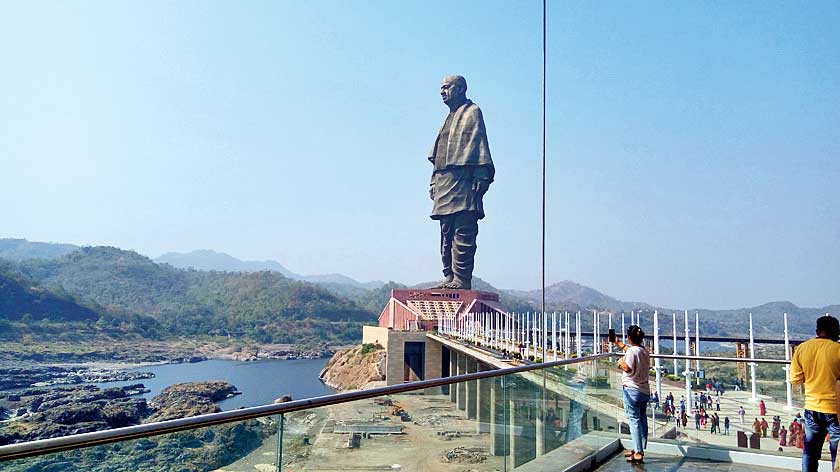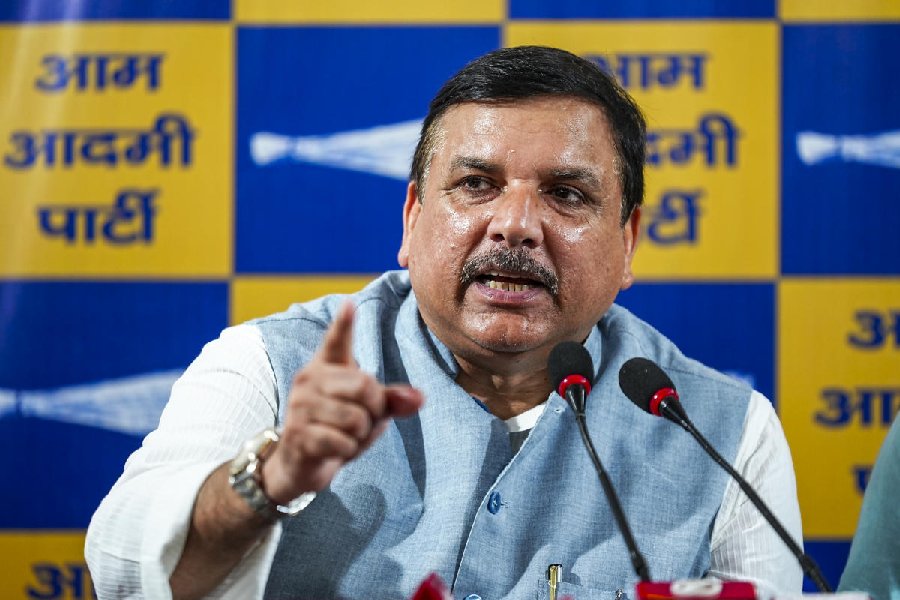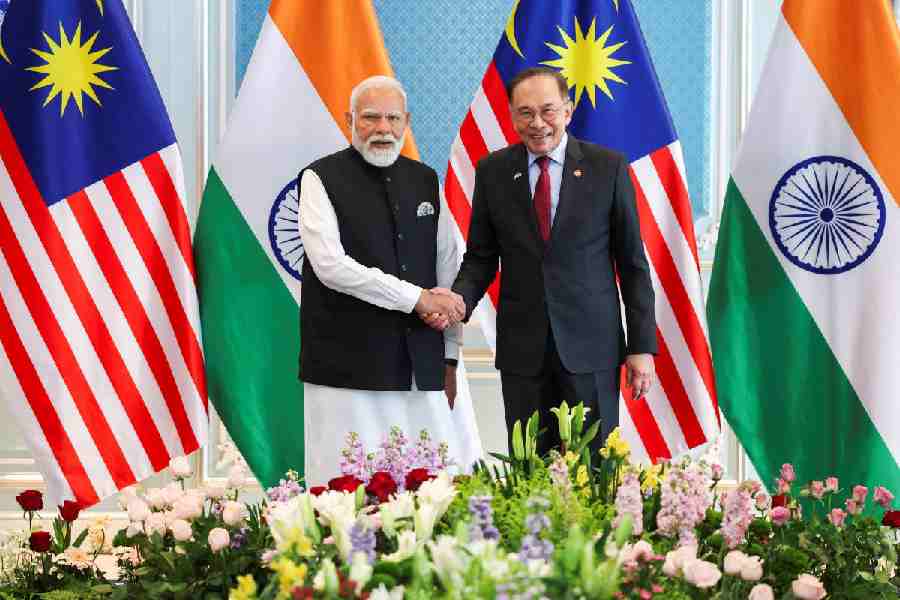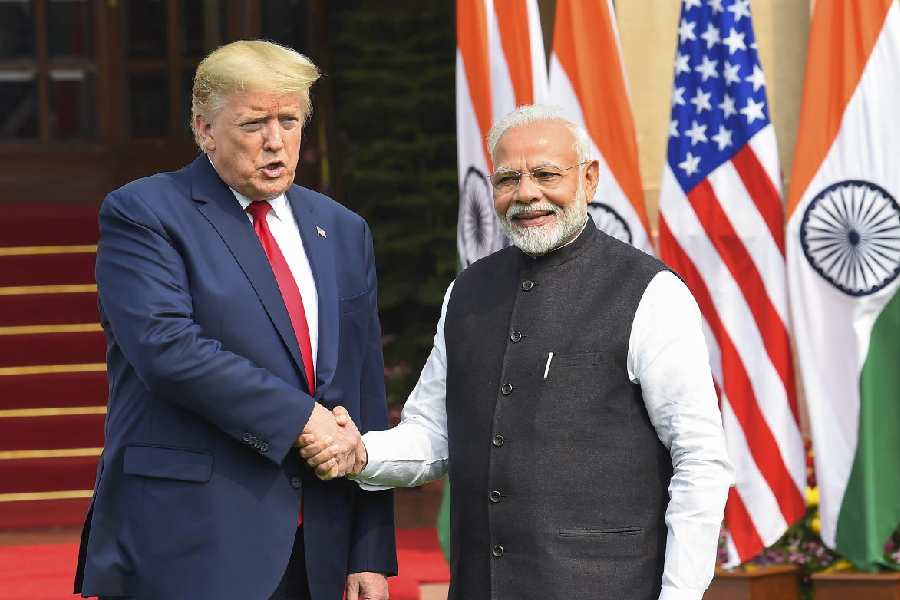Sir — Large-scale displacement of people that occurs in order to accommodate so-called ‘development’ projects does not benefit anyone in the long run. People who are expected — forced? — to give up their land, lose their homes and livelihood. For instance, the Statue of Unity, built to develop the tourism industry, uprooted 75,000 adivasi families from the surrounding area. There is also massive destruction of the environment. The construction of the JSW Utkal Steel Limited in Odisha threatens to displace villagers and poses a threat to forests in the area. As such, it should be stopped at any cost.
Dilip Behera
Bhubaneswar
Speak freely
Sir — It is unfortunate that the human rights activist, Harsh Mander, was barred from participating in the hearing on petitions seeking the registration of FIRs against instigators of violence in Delhi. One fails to understand why the Delhi police claimed that Mander’s speech was ‘contemptuous’ (“Explain speech: SC to Mander”, March 5). Mander was only reminding people that it is a moral obligation to fight injustice and the violation of constitutional rights. Even if Mander is not commended for speaking truth to power, he must at least not be shown in a bad light. But this is not surprising since we live in times when hatemongers are extolled as deshbhakts.
It was regrettable that the judge, B.R. Gavai, was apparently the first to mention the speech in question because it gave the solicitor-general, Tushar Mehta, who is representing the Centre, a rod to beat Mander with. Worse, the Chief Justice of India, S.A. Bobde, reportedly said that the judges would “have to decide what [they] have to do with [Mander]”. Petitioners should not feel that they are being intimidated by judges.
Judges are meant to dispense justice without fear or favour. However, some recent judgments can raise questions about why the outcomes have suited the Hindutva narrative of the ruling dispensation. It would be a sad day for democracy if learned judges start acting as yes-men of the government. One hopes the Supreme Court will continue to assert its independence and retain its rightful place in the Indian democracy. Its latest direction to the Delhi High Court to list the riot cases within a stipulated time frame is a good sign in this regard.
G. David Milton
Maruthancode, Tamil Nadu
Sir — The Supreme Court took strong exception to Harsh Mander’s alleged remarks that the citizenship issue should be taken up on the streets as he has faith in neither the judiciary nor Parliament. On hearing this, the CJI, S.A. Bobde, said that the court had to decide what to do with Mander before hearing his plea on hate speeches instigating the riots in Delhi.
Yet, there are reasons for doubts to arise in the minds of common people about the independence of the judiciary. First, the former judge of the Delhi High Court, S. Muralidhar, was transferred immediately after he questioned the police for not registering FIRs against the instigators of violence in Delhi. His successor has adjourned the case till April 13.
Not only have several judges defended the rights to dissent, protest and criticize in the past but, Ajit Prakash Shah, a former judge of Delhi High Court, recently expressed disappointment with apex court judgments on matters related to Kashmir, Ayodhya, the National Register of Citizens as well as its “newfound attraction with sealed cover” (“Ex-judge lists SC ‘missteps’”, Feb 13). Conflicting positions within the judiciary are confusing for ordinary people and can lead them to lose faith in the justice system.
Jahar Saha
Calcutta
Sir — The Delhi police sought action against the rights activist, Harsh Mander, whose speech on peaceful protest and communal harmony was presented to the Supreme Court as incitement to violence. Governments are already in favour of rogue officials, coming out in their support instead of taking them to task. The Supreme Court’s refusal to go through the transcript of Mander’s speech is a chilling signal that any criticism of the court may become a reason to deny a citizen due process.
S.S. Paul
Nadia
Sir — In his speech, Harsh Mander reportedly said that the fight against the Citizenship (Amendment) Act could not be won in court even though they would try as hard as possible because at the end of the day it “is our Supreme Court”. How exactly is this statement contemptuous? Citizens can be dissatisfied with or critical of court orders. In fact, the judiciary recognizes the right to such grievances by allowing people to appeal to higher courts if they are not happy with a judgment. Expressing dissatisfaction with a judgment or raising concerns about it does not necessarily amount to a contempt of court.
Asha Mishra
Calcutta











